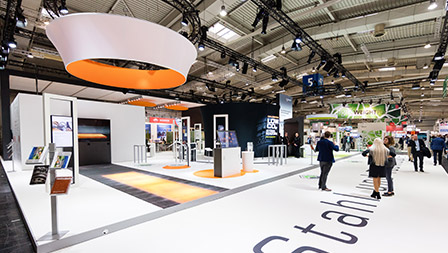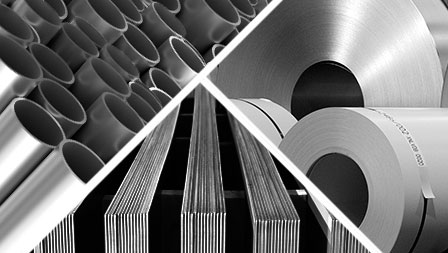As from 2026, Salzgitter AG to deliver low-CO2 steel to all BMW Group plants in Europe and thus making a major contribution to supporting its customer in achieving their climate targets
01.02.2022 | Salzgitter AG
- Salzgitter AG’s new process route will lower CO2 emissions in steel production by more than 95 percent in the future
- Circularity: steel scrap from the BMW Group plants to be returned and directly reused
- Gunnar Groebler, CEO of Salzgitter AG: “Closed-loop flows of material only unleash their full potential with strong partners.”
- Joachim Post, Member of the Board of Management of BMW AG, Purchasing and Supplier Network: “Another important step in lowering CO2 emissions at source in the supplier network.”
Salzgitter. As from 2026, Salzgitter AG will be supplying all the European plants of the BMW Group with low-CO2 steel. In addition, the companies have now concluded an agreement for serial delivery from the low-CO2 process route. In future, steel that is no longer produced by fossil fuels such as coal and harnessing hydrogen and green electricity instead – resulting in more than 95 percent lower CO2 emissions - will make a significant contribution to reducing CO2 emissions throughout the BMW Group’s supplier network. This decision positions BMW Group, whose stamping plants in Europe process more than half a million tons of steel a year, as the world’s first automotive manufacturer to have concluded an agreement of this kind.
“Salzgitter AG has put circularity at the heart of its new strategy,” as Gunnar Groebler, CEO of Salzgitter AG stated. “We are convinced that closed-loop flows of material can only unleash their full potential with strong partners. We are delighted to have this circular economy cooperation in place, as well as the agreement to deliver green steel to BMW Group as our long-standing customer. We can now directly support them in achieving their climate objectives. Partnering for Transformation – our new corporate vision – is now being lived in practice.”
“This is an important step in substantially reducing CO2 emissions at source in the supplier network,” says Joachim Post, Member of the Board of Management of BMW AG, Purchasing and Supplier Network. “Our aim is to reduce vehicles’ lifecycle carbon footprint with a holistic approach. With steel, in particular, we are leading the way by sourcing low-carbon steel for our plants in Europe in the future.”
As from 2026, Salzgitter AG will be supplying its customers in the automotive and energy sectors, in industrial and household appliances, along with the construction sector, with low-CO2 high-grade materials solutions for serial production. Based on the established electrified steel route in the Peine mill, preparations for the transformation to green steel ready for process and serial production and tailored to the individual customer are already under way.
Increased use of scrap reduces CO2 emissions
Due to its energy-intensive production, steel produces a particularly high volume of CO2 emissions. Thanks to its versatile properties, steel is one of the most important materials in automotive production and will continue to represent a key element in bodywork and numerous components in the future as well. Up to a quarter of this steel used in the BMW Group’s vehicles is already sourced from recycled materials. The BMW Group plans to incrementally raise the share of this secondary raw material by up to 50 percent over the period until 2030.
Low-CO2 steel production through the direct reduction process using hydrogen
With the aim of massively reducing CO2 emissions in steel production, Salzgitter AG intends to gradually switch the production of steel to a hydrogen-based route under its SALCOS® – SAlzgitter Low CO2-Steelmaking transformation program. In contrast to the former process involving blast furnaces, hydrogen and green electricity will replace the carbon formerly required for producing steel. In harnessing this process, Salzgitter AG plans to lower the CO2 emissions in steel production step by step to a mere five percent of the original emissions volume.
'
Closed-loop conserves resources and reduces the carbon footprint
Five years ago, the BMW Group and Salzgitter AG already established a closed-loop materials flow for reusable steel from the BMW Group’s Leipzig plant. When supplying the plant with steel coils, Salzgitter AG takes away steel to be recycled from the stamping plants, for instance from punching out doors, and feeds it into the production of new steel. We will now set about expanding this cooperation.















